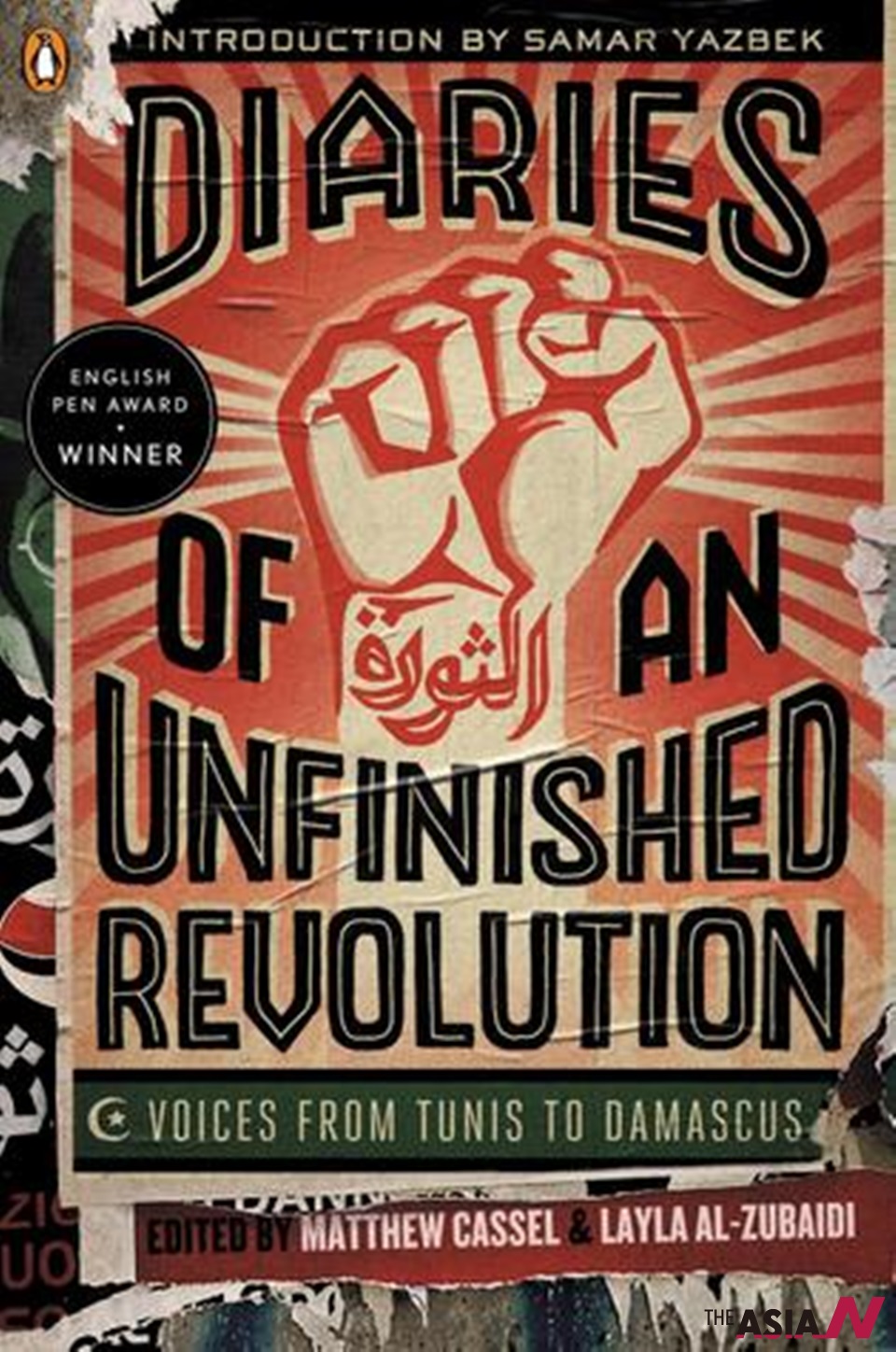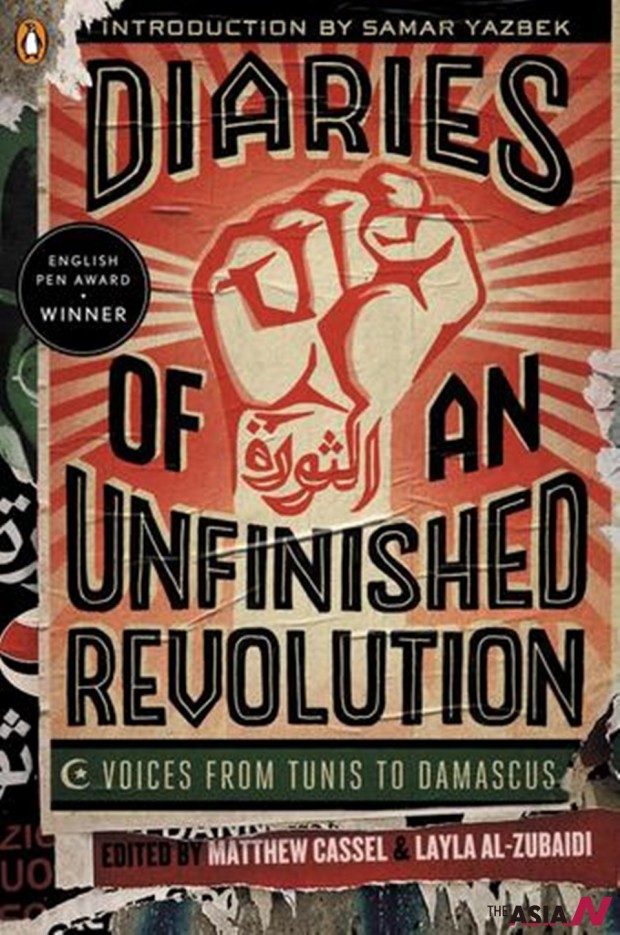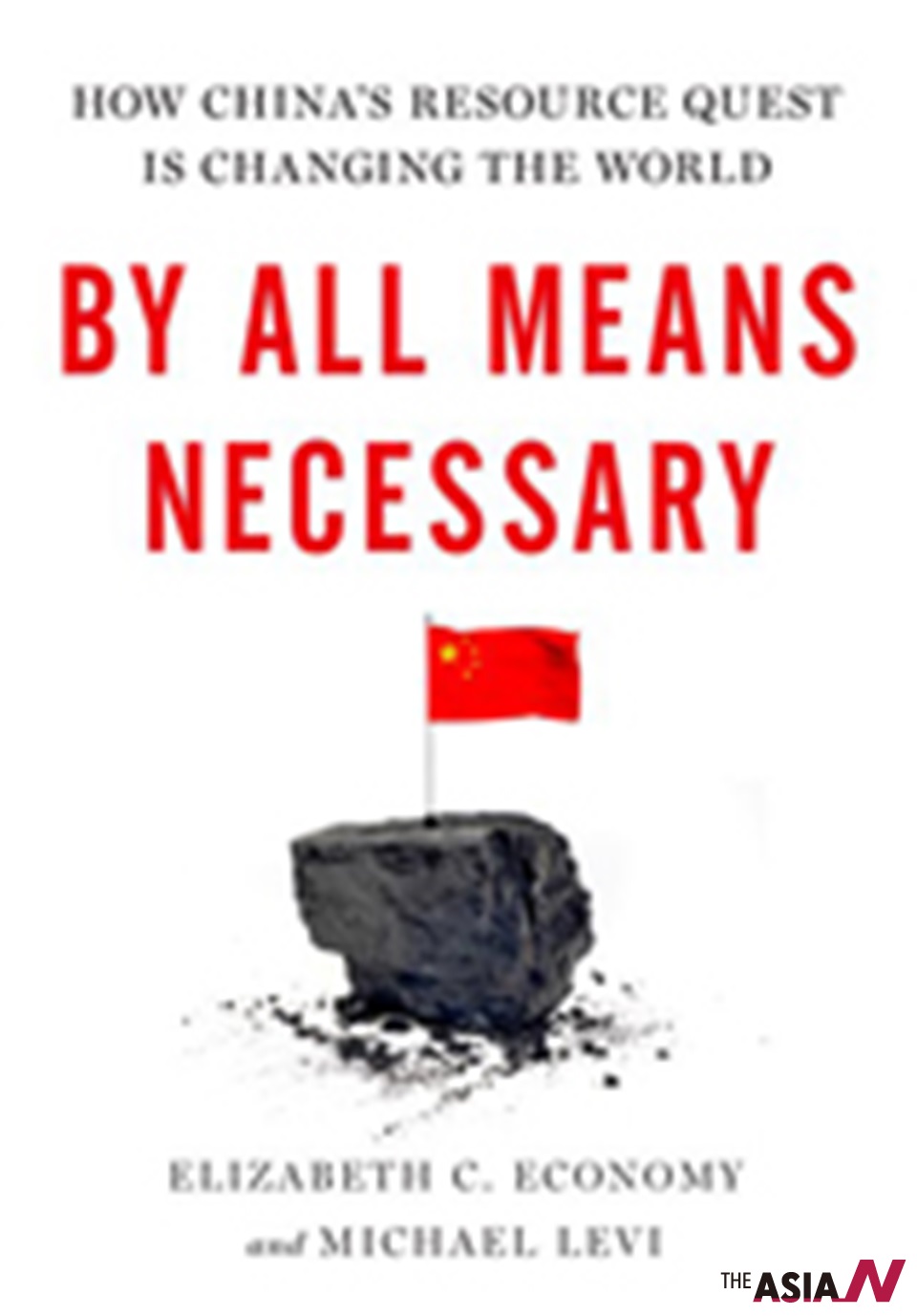
[Asian Books] Diaries of an Unfinished Revolution: Voices from Tunis to Damascus
Diaries of an Unfinished Revolution: Voices from Tunis to Damascus
By Layla Al-Zubaidi, Matthew Cassel, Nemonie Craven Roderick, Robin Moger, Georgina Collins and Samar Yazbek | Penguin Books | 2013
Although the world was informed about the uprising of the Arab Spring in 2011 through the media, experts, analysts and expats, the voices of the participants and those present witnessing were absent. The Diaries of an Unfinished Revolution, recipient of the English PEN Award, brings into light the untold, personal account of individuals across the region from eight countries: Algeria, Bahrain, Egypt, Libya, Tunisia, Saudi Arabia, Syria, and Yemen. They include student activists and journalists, half of who are women. Many contributors share the fear, hurt and frustration of the people for generations under regimes. While most of the authors appear generally hopeful, they reveal their doubt and emotional burden through complex appraisals. Malek Sghiri from Tunis contemplates over the future the revolution will bring, whether political modernism can reconcile with the traditional values of Islam and the extent to which women’s participation in society will increase.
Ms. Ahmad, a Saudi journalist, reported in Libya during the uprisings. While she covers the details of chaos and violence in other countries, she reveals the lack of change occurring at home. Like other female contributors, she also discusses the many connections and tensions between women’s rights and political uprisings.
These essays allow us to feel that the first bold steps for change have just begun. Yasmine el Rashidi, a woman from Cairo, for example, tells of the oppressive mood in Egypt before the demonstrations began and how a tense and aggressive atmosphere gradually built up. Rashidi shares how amid the violence and oppression, she and her friends felt empowered and a sense of hope for the first time in their lives. She could also observe a fundamental change in the Egyptian people after the demonstrations in Tahrir Square. The contributors bring the readers closer to the revolution on a personal level as the individuals were directly involved and had experienced the battlefield.
Limitations and biases of the individual authors do pose a question to the book’s objectivity; however, it provides a contrast and personal touch opposed to “experts” reporting in the media. The authors help to put the revolution in context and reveal subtle growing changes in the people and society during this time.





